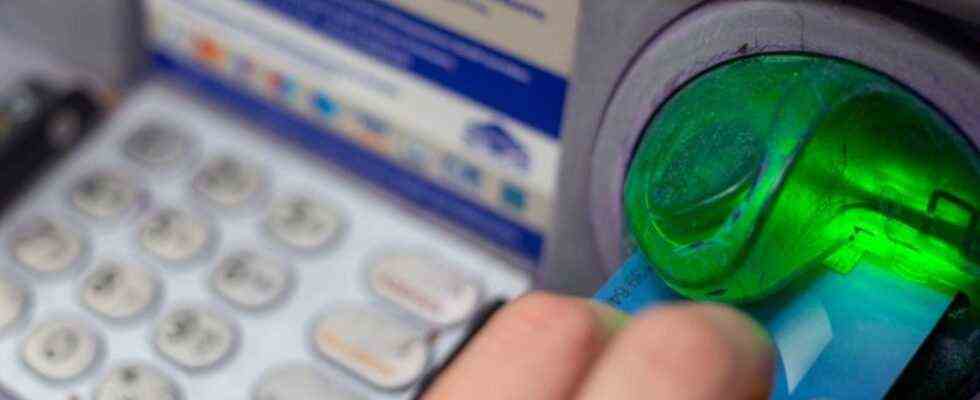crime
Less data theft at ATMs:
From January November this year, ATMs were manipulated 116 times nationwide in order to spy out card details and PINs from bank customers. Photo: Fernando Gutierrez-Juarez / dpa
© dpa-infocom GmbH
Criminals can do less and less with data from bank customers that they spy on at ATMs in Germany. Modern technology slows down “skimming”.
Fewer cases, less damage: data theft at ATMs in Germany is becoming more and more obsolete.
From January up to and including November of the current year, the gross damage as a result of spying on card data and PIN (PIN) added up to just 330,000 euros, as the Frankfurt facility Euro Kartensysteme announced on request.
In the first eleven months of 2020, the damage as a result of such “skimming” cases was a little more than one million euros; in 2020 as a whole it was around 1.06 million euros. The English term “skimming” means “to skim off” or “to cream off”.
The amount of damage has been falling for years: in 2019, the damage as a result of spying on data from bank customers in Germany amounted to a little more than 1.4 million euros. In 2013 it was 11.3 million euros, in 2012 and 2011 even 34 million euros each.
The financial sector explains the downward trend primarily by the fact that massive investments have been made in security. Germany has been relying on EMC technology for years. Payment cards are equipped with a kind of mini-computer; the card is checked for authenticity every time it is used.
There are only a few countries in the world where payment cards are equipped with magnetic strips that are relatively easy to copy and reading devices in stores are designed for magnetic strips. Basically, criminals can only use forged cards there based on data stolen in Germany for shopping.
“The skimming business model is no longer of interest to fraudsters,” concludes Margit Schneider from Euro Kartensysteme. “All too often you come across EMV-capable ATMs and terminals in non-European countries where counterfeit cards without an EMV chip can no longer be used.”
In order to illegally obtain data from bank cards, criminals manipulate the slot on the ATM, for example – or they try to access the data via fake door openers. Sometimes the entry of the PIN is also filmed with mini cameras or saved using a fake keyboard attachment.
In this way, criminals in Germany manipulated ATMs 116 times between January and November 2021, according to data from Euro Card Systems. In the same period of the previous year there were 134 such “skimming” cases nationwide, and there were 152 in 2020 as a whole. Individual machines could have been attacked several times.
By far the greatest number of cases were counted in Bavaria in the current year (55). According to the information, there were also a double-digit number of skimming attacks on ATMs in Baden-Württemberg (26), Lower Saxony (13) and Hesse (11).
Duplicate cards based on data stolen in Germany were used primarily in the USA (78 percent share of damage), and also in India (11 percent). Thanks to international agreements, the local banking industry can now recover almost the entire amount of the damage. Because the countries with the lowest security standards have to pay for damage from fraudulent transactions with stolen card data.
Consumers in Germany who have become victims of skimming do not normally have to fear any financial disadvantage. As a rule, financial institutions compensate for such damage – provided that customers have handled their bank card and PIN carefully.
While data theft at ATMs is on the decline, machine blow-ups are booming: In 2020 the number of such attacks on ATMs in Germany rose by almost a fifth from 349 to 414 in the previous year. According to the Federal Criminal Police Office (BKA), this was the highest value since the beginning of the statistical recording in 2005. In most cases (256), however, it remained an attempt. According to the BKA, the perpetrators captured a total of 17.1 million euros. In addition, with their brutal method of illegal fundraising, they also caused property damage in the mid double-digit million range.
The damage caused by theft or loss of payment cards also runs into the millions. Euro card systems registered an increase to 12,505 cases from January up to and including November of the current year (same period last year: 9682). The gross damage caused by the loss and theft of cards rose from around 14.2 million euros to a good 16.4 million euros. Many consumers make it easy for criminals because, despite all warnings, they keep their card and PIN together in their wallets.

